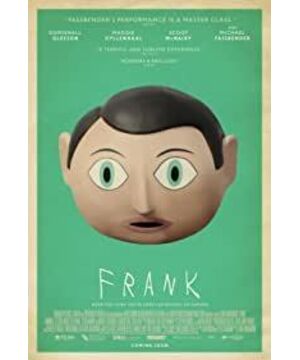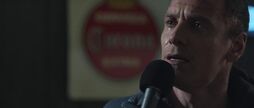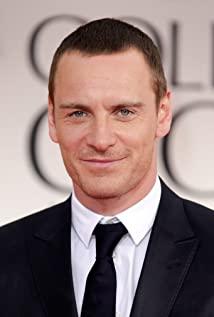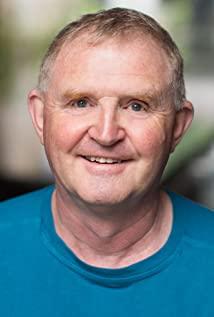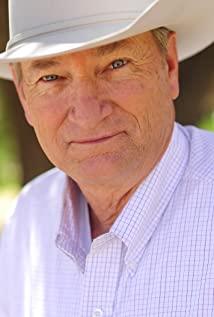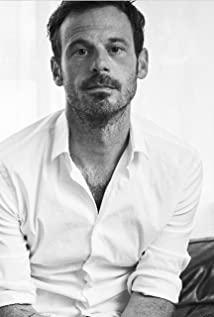The two movies I didn't intend to watch recently are both related to mental illness. One is "Frank", which was very popular in the past few years, and the other is "True Love Full Bag", which is French and warm. Both are stories of interaction with mental patients from the perspective of the other. "Frank" is a sight that extends from a healthy adult man, while "True Love" is a story of a pre-adolescent girl who focuses on self-discovery and involves an escaped mental patient.
Relatively speaking, I like "Frank" more in the two films, although as a play, both films are equally good. However, what makes "Frank" superior is that the mentally ill (or more broadly referred to as the handicapped) it portrays are not simplified, dwarfed, and unable to express themselves as the "distant other". . Frank represents a more widespread invisible mental illness: when he wears a headgear, he is a talented musician who is looked up and imagined by healthy people, but when he gets close to them when their disease is real. Just like Cinderella’s magic at 12 midnight, you can see his real helpless, suffering, and helpless sighs-those real and insurmountable gaps between them and healthy humans; and the mental patients are just like us. The complex hearts that we possess and the cry of love—the proof that they are the same human beings as we are.
Even in the 21st century, mental illness has gradually joined the ranks of epidemics, allowing more mild patients to have the opportunity to tell the reality of mental patients after painful and long treatment; but most of the time, mental patients are far away from us. An imagination. Because there is really a lack of first-hand knowledge, it would be good for us to accept them as innocently as the eighty-nine-year-old girl in "True Love Is Full of Bags". Even so, subjectively, we still can’t do what they are. Come get to know them. Not to mention that in the complex and unfortunate reality, mental patients will experience more indifference, hostility and strong rejection. Here, "True Love" is also deliberately or unintentionally ironic: sensitive children can even honor non-aggressive mentally or mentally handicapped patients, rather than being constrained by their own success as John in "Frank" Dreams unintentionally materialize mental patients as companions, making their deepest pain a layer of "packaging" to cater to people's fantasies.
Horney put forward a point in "The Neurotic Personality of Our Time": "Excluding the illusory and esoteric nature of neurotic patients' recurring problems, we will easily find that they are related to those troubles in our culture. The problem of normal people is only the difference in degree." Horney puts forward this point of view not in simplifying and underestimating the pain experienced by mental patients, but in trying to encourage ordinary people to have empathy for mental patients. In another part of the book, she explained to us the difficulties of physical and mental disorders and mental illnesses: "Although normal people must endure the fear and defense of their own culture, generally speaking, they are still able to fully develop their own potential... What he suffers is only inevitable in his own culture. And neurotic patients always suffer more than ordinary people. He always has to pay a high price for his defense, which leads to his vitality and His vitality is impaired, or more precisely, his ability to achieve achievement and enjoy life is impaired."
The gap between the physically and mentally handicapped and the mentally normal is huge. Even if the mild mentally ill is not physically far away from us, the farthest distance in the world is the two hearts that are not open to each other. The human mind naturally carries the attributes of a tropical rain forest with complex levels, separated by a layer of belly, and the intricate personal history behind us, making such communication very difficult even among ordinary people, let alone with The mind and memory are full of unknowns like the Amazon jungle, how difficult it is to communicate with people with complex and confrontational disabilities.
A few years ago, there was a film describing the experience of physical and mental disabilities from a subjective first point of view-"Life Is So Beautiful", which left a very deep impression on me. This film is about a "vegetable boy" who is born handicapped, has deformed limbs and can't speak, how to tell the story of his personal life and the world he has witnessed with the constant assistance of the helper who is flashing light. The smooth narration of the film gives us the opportunity to hear the whisper of his mind, and enables those of us who believe in miracles to prove the correctness of optimism.
But to be honest, let the physically and mentally disabled unload their complex and heavy defense mechanisms and find a language to help them talk to us. This is really harder than finding a needle in a haystack; among patients with severe physical and mental disabilities and severe mental illness It is indeed unrealistic to expect such a flash of light, two-way understanding communication. But if we lower some requirements and just unilaterally want to understand the information that may be released by that party, art may be an option with a bright future.
Most (extrinsic) physically and mentally handicapped people suffer from overload. In addition to the original trauma, the accumulated frustration in interpersonal relationships and social life will also cause them to develop a more criss-cross inwardly. A world built with high walls. Art, this kind of language that can still be established beyond reason and social rules, is extremely low-key and euphemistic, so that those who have many taboos in their hearts can speak more easily and get the recognition and understanding they desire. In this way, those imprisoned souls can finally release and present the complex things they feel first-hand in a multi-dimensional way that does not hurt people or harm.
But objectively speaking, the proportion of artists with physical and mental disabilities must be much lower than the proportion of artists with normal minds; even if the stereotype tells us that an artist is not mentally ill, it is not an artist. However, even when the threshold of art is now low to the freezing point in history, becoming an artist still means a antagonistic environment, super comprehensive quality and endless difficulties in personal growth-this is not a game for the weak. . As the mother in "Frank" said: "Pain does not make music. Music is everywhere. If you insist, it is mental illness that is holding him back."
Suffering from mental illness is really painful, it obliterates the experience of creativity and productivity, and it feels hard for outsiders. Sometimes when I see literary and artistic works to advertise, or to beautify the physically and mentally handicapped, or even to see the handicapped being hyped and packaged as cultural symbols, I will feel chills and anger from the bottom of my heart. As a result, "Frank" is a very special movie, which truly presents the complicated struggle between a person's fortune and misfortune. The tragic nature of destiny sometimes puts people in a big place. With such a special sample, we can rethink what the nature of humans is, so that we can face the weak and their suffering, and learn to respect and respect others.
Finally, I quote Roman Roland in the preface of the "Biography of Michelangelo" to make a conclusion: "Spiritual boredom is not a sign of greatness. That is to say, in the general great person, there is a lack of life and life between beings and all things. The harmony between the laws is not great: it is a weakness—why conceal this weakness? Isn’t the weakest person sin worthy of love?—he is more worthy of love, because it is The need for love is even more urgent. I will never create an inaccessible hero model. I hate that cowardly idealism, which only teaches people not to look at the sufferings of life and the weakness of the soul. We are too easy to be in peace. The people deceived by dreams and willingness say: The lies of heroes are only a manifestation of cowardice. There is only one kind of heroism in the world: it is to look at the true face of the world-and love the world."
"I love you all."
View more about Frank reviews


